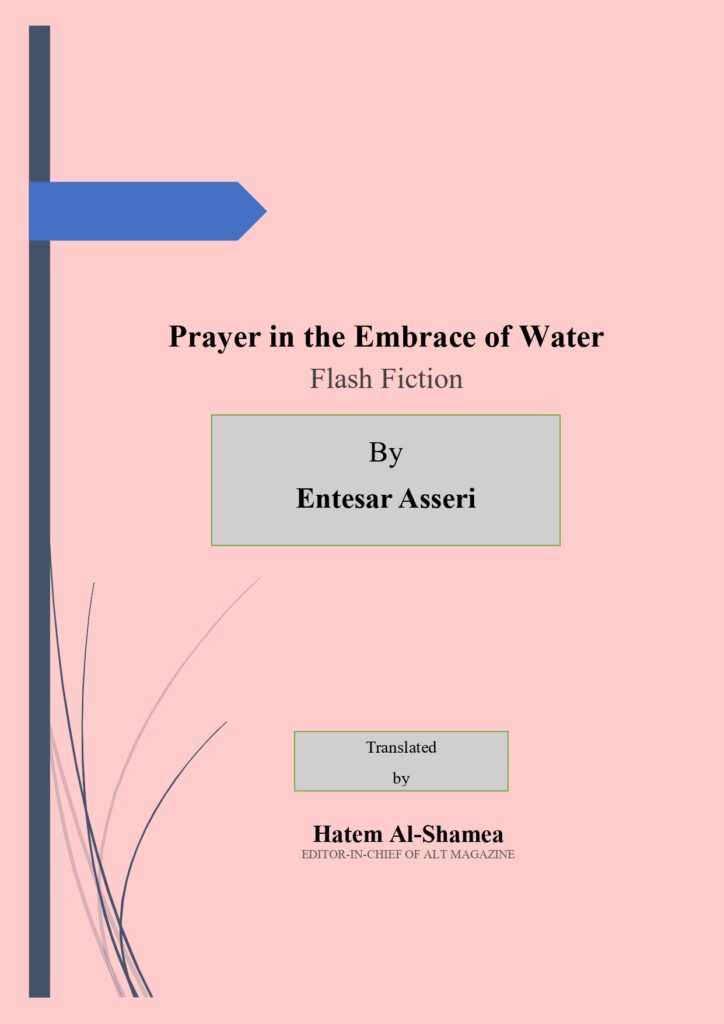Introduction
Raya Ahmed’s short story “A Husband for My Mother” offers a poignant exploration of the lingering effects of paternal absence on a child through the lens of the protagonist Shams’ innocent yet misguided quest. Employing realist techniques amidst surrealist undertones, Ahmed illuminates Shams’psychological turmoil resulting from her lack of a father figure. This paper will conduct a close reading supported by feminist postcolonial and psychoanalytic theories to analyze Ahmed’s characterization of Shams, critique of Yemeni patriarchal norms, and examination of the father-daughter bond.
Characterization of Shams
Ahmed crafts a vivid portrayal of Shams through behaviors borne of her circumstances rather than essence. Shams’ efforts finding a husband stem not from ulterior motives but a child’s limited understanding of fulfilling emotional voids (p. 1). Her actions reflect fragmented subjectivity shaped by discourse rather than fixed identity, aligning with theories of Barthes, Foucault and Mohanty who view the self as permeable terrain negotiated amid power webs (Barthes 1977, p. 435; Foucault 1980, p. 98; Mohanty 2003, p.511).
Shams’ detachment from queries about her father denotes conditioning by Yemeni patriarchal norms prioritizing male lineage (p. 7). Her dissociation echoes the postcolonial “split-self” described by Bhabha, fractured between internalized domination and resistance amid coloniality’s ruins (Bhabha 1994, p. 66). Shams embodies colonized subjectivity’s double-bind amid competing discourses. Her mother’s education contradicts traditional gender roles yet maintains silence on her absentee father.
Psychoanalytically, Shams’ fixation finding a replacement emerges from lack internalized since infancy (p. 8). As Laplanche theorizes, early psycho-social traumas persists symbolically shaping behaviors throughout life (Laplanche 2007, p. 421). Shams’ futile quest echoes the position of economically marginalized women and children in Yemeni patriarchy.
Critique of Yemeni Patriarchy
Through Shams’ perspective, Ahmed critiques Yemeni patriarchal norms pathologizing father-absence while normalizing maternal sacrifice. Shams percieves male presence solely through valourization of aggressive, authoritative traits in potential father-figures (p.1).
By framing maternal education as socially unacceptable, male characters imply a “natural” gender hierarchy (p. 6). Yet Ahmed pointedly frames respectable professions like teaching as unsuitable for maternal partnership. This critique parallels postcolonial feminist work interrogating gendered foundations of colonial modernity through non-Western lens (Mohanty 2003, p. 514).
Symbolically, Ahmed couches paternal dysfunction within Yemen’s wider socio-political rupture caused by coloniality. Shams internalizes her father’s departure yet remains oblivious to structural forces contributing. Her fixation finding replacement reflects patriarchy’s erasure of fathers abandoning familial duties (p. 8). Overall, Ahmed critiques gender-role ossification amid Yemen’s broader postcolonial condition.
Father-Daughter Bond
Shams’ projections onto potential father-figures emerge from absence rupturing the dynamic seen by psychoanalysts as formative to identity development (Winnicott 1973, p. 89). Her fantasy father embodies aggressive, protective archetypes resonating on a subconscious level.
Yet Ahmed suggests fantasy cannot replace lived experience of the “Good Enough Father” providing stable mirroring (Winnicott 1973, p. 90). Shams imbues random men with paternal significance yet remains oblivious her claims demean maternal autonomy. Her dissociation from queries about her biological father denotes the subconscious damage wrought by his desertion.
Symbolically, Shams’ recurring nightmares imply internalization of her culture’s pathologization of absent fathers through fixation and fear (p. 8). Ahmed calls attention to emotional manipulation endured by economically vulnerable women whose realities contradict idealized gender narratives. Ultimately, “A Husband for My Mother” offers a sobering portrayal of the lifelong impacts when fatherly duties are framed as optional within patriarchal family structures.
Conclusion
Through the perceptive lens of Shams’ journey, Raya Ahmed’s “A Husband for My Mother” delivers a piercing critique of Yemeni patriarchy’s affects on women and children. Employing realist techniques amid nuanced postmodern sensibilities, Ahmed crafts a vivid yet subtly layered portrayal of the multifaceted constraints imposed by normalized gender roles.
Psychoanalytically informed and supported by postcolonial feminist frameworks, this paper analyzed Ahmed’s characterization of Shams as a constitutive subject navigating power imbalances amid competing discourses. Ultimately, “A Husband for My Mother” emerges as a poignant examination of paternal absence’s lasting impressions and patriarchy’s complicity in pathologizing the father-child bond for politically expedient ends. Ahmed’s subtle yet impactful narrative calls for reimagining family formations liberated from oppressive gender essentialism.
References
Ahmed, Raya. A Husband for My Mother. Translated by Hatem Al-Shamea. Arab Literature and Translation Magazine & Press. 2023.
Barthes, Roland. “The Death of the Author.” Image, Music, Text. Translated by Stephen Heath, Hill and Wang, 1977, pp. 142-148.
Bhabha, Homi K. “Intention of the Native.” The Location of Culture, Routledge, 1994, pp.66-84.
Foucault, Michel. “Two Lectures.” Power/Knowledge: Selected Interviews and Other Writings, 1972-1977, Vintage, 1980, pp. 78-108.
Laplanche, Jean. “Transference: Its Provocation by the Analyst.” Essays on Otherness, Routledge, 1999, pp. 211-227.
Mohanty, Chandra Talpade. Feminism without Borders: Decolonizing Theory, Practicing Solidarity. Duke University Press, 2003.
Winnicott, D. W. The Maturational Processes and the Facilitating Environment. Karnac Books, 2006.



